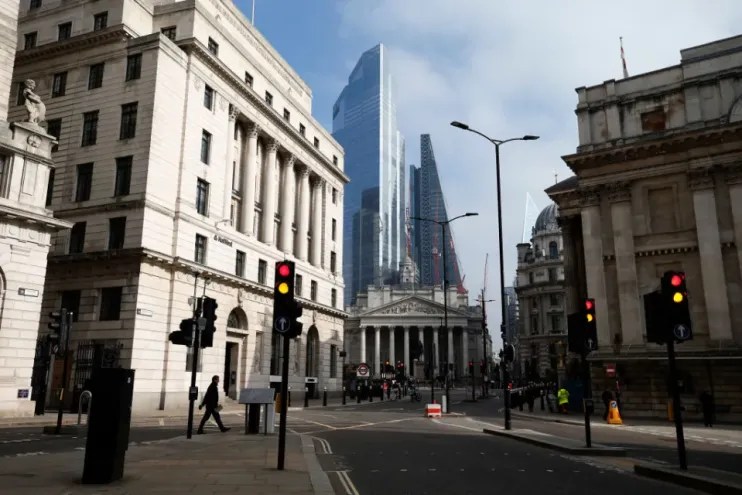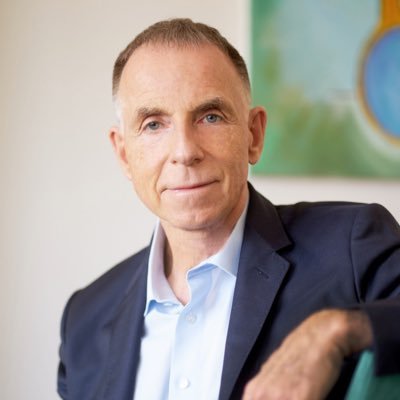The UK has slipped down a vital economic index – but it’s not too late

The UK has hit its lowest point on record on the Index of Economic Freedom – and historian, sociologist and economist Dr Rainer Zitelmann warns significant changes are required in this guest essay
According to the 2024 Index of Economic Freedom, which has just been published, the level of economic freedom in the United Kingdom is at its lowest point since the index was first compiled. The Heritage Foundation has been analyzing the development of economic freedom around the world every year since 1995; the current ranking covers 176 countries and is based on assessments of twelve specific criteria.
The United Kingdom, which lost its “mostly free” status last year as it fell to 28th place, has now fallen again and lands in a disappointing 30th place in the latest ranking, behind Portugal and just ahead of Bulgaria. 16 European countries are now considered to be more economically free than the UK.
Only four countries (Singapore, Switzerland, Ireland, and Taiwan) are deemed “free” in the fullest sense of the word, while 22 countries are considered “mostly free.” The United States only just scrapes into this group with a score of 70.1 out of 100 possible points; losing another 0.2 points would see the U.S. lose its “mostly free” status. “Big-government policies have eroded limits on government,” the Heritage Foundation reports. “Public spending continues to rise, and the regulatory burden on business has increased.
Restoring the U.S. economy to ‘free’ status will require significant changes to reduce the size and scope of government. Over the years, unchecked deficit spending and government debt have accelerated, and inflation has undercut economic livelihood. Uncertainty and poor policy choices have left the U.S. economic outlook in flux.”

The ranking refutes the lopsided view that the United States is the country of “pure capitalism” and that a system resembling “democratic socialism” prevails in Europe, especially in the Scandinavian countries. Norway, Sweden, and Denmark are among the ten most capitalist countries in the world. And while the U.S. has lost almost seven points since 1995, Sweden has gained 16 points in the same period and is now in ninth place; Denmark even makes it as high as seventh.
Of the European countries, Germany in particular has lost ground compared to the previous year. In the 2023 index, Germany ranked 14th. Within a single year, Germany has fallen four places and is now in 18th. This is important because it is not the rank of a country that is decisive, but the relative change in rank over time.
Compared to the previous year, but especially over the long term since 1995, Vietnam stands out in particular. Vietnam only ranks 59th out of 176 countries, but it is closing the gap in leaps and bounds: Vietnam climbed 13(!) places compared to the previous year, where it was 72nd. I explore the reasons for Vietnam’s success in my new book How Nations Escape Poverty.
The market economy reforms Vietnam initiated in the late 1980s resulted in the number of people living in extreme poverty falling from almost 80 percent to just 5 percent. Vietnam receives very good scores particularly in the categories “Fiscal Health”, “Government spending”, “Tax burden” and “Trade freedom”, while there is still a lot of catching up to do in the areas of “Government Integrity” and “Judicial Effectiveness”.

The link between economic freedom and living standards is confirmed by the Heritage Foundation’s analysis of 176 countries. In countries that are either “repressed” or “mostly unfree,” more than 15 percent of people are living in poverty, while in economically free countries the figure is less than two percent. GDP per capita in economically free countries amounts to 103,869 US dollars, while in the “mostly free” countries it is 61,052 US dollars. In countries that are considered “mostly unfree” and “repressed,” however, it is less than 11,000 US dollars. The least economically free countries this year are again North Korea, Cuba, and Venezuela.
There is also a clear connection between economic freedom and environmental standards, as a comparison of the Index of Economic Freedom with the Environmental Performance Index shows: the more capitalist a country, the higher the environmental standards.
Rainer Zitelmann is the author of the just-published book How Nations Escape Poverty